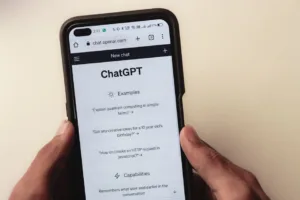
The threat actor UNC3944, also known as Scattered Spider, has evolved from SIM-swapping operations to ransomware and data theft extortion, posing significant risks to enterprises across multiple sectors. Recent reports from Mandiant and Google Cloud’s Threat Intelligence team highlight the group’s aggressive social engineering tactics and expanding geographic footprint1. This article provides actionable hardening guidance derived from frontline observations.
Threat Actor Profile and Tactics
UNC3944 primarily targets English-speaking countries including the US, UK, Canada, and Australia, with recent expansion into Singapore and India1. The group shifted from telecom-focused SIM-swapping in 2022 to broader ransomware operations in 2023-2025, with retail sector victims increasing from 6% to 11% of data leak site postings. Their signature techniques include help desk impersonation, MFA fatigue attacks, and credential theft via IT-themed SMS phishing campaigns.
Technical Hardening Recommendations
Google Cloud’s hardening guide emphasizes four key defense areas. For identity security, organizations should implement phishing-resistant MFA like FIDO2 keys and require in-person verification for high-risk account changes. Network controls should include segmentation of critical systems and blocking TOR/VPS IP ranges. Endpoint protection requires restrictions on lateral movement via SMB/RDP and monitoring for unauthorized domain joins1.
| Defense Area | Specific Controls |
|---|---|
| Identity Security | FIDO2 MFA, help desk verification protocols |
| Network Controls | Critical system segmentation, TOR/VPS blocking |
| Endpoint Protection | SMB/RDP restrictions, domain join monitoring |
| Detection | MFA registration anomalies, Teams impersonation attempts |
Detection and Monitoring
Security teams should monitor for suspicious patterns including multiple MFA registrations from the same device and anomalous help desk ticket volumes. Google SecOps and Microsoft Defender provide specific detection rules for UNC3944’s collaboration tool impersonation attempts. The group frequently uses fake “IT Support” Teams chats and repeated MFA push notifications to bypass security controls1.
Global Context and Legal Developments
The UN General Assembly’s December 2024 cybercrime treaty establishes new frameworks for international cooperation against threats like UNC3944. The treaty streamlines evidence sharing and joint investigations while mandating capacity-building for developing nations2. This legal development coincides with UNC3944’s geographic expansion, highlighting the need for coordinated defense strategies.
Conclusion
Defending against UNC3944 requires layered technical controls, employee awareness training, and alignment with emerging legal frameworks. Organizations should prioritize identity security hardening, network segmentation, and anomaly detection while tracking the group’s evolving tactics. The combination of technical measures and international cooperation frameworks provides the most robust defense against this persistent threat actor.
References
- “Defending Against UNC3944 (Scattered Spider): Cybercrime Hardening Guidance,” Google Cloud Blog, May 6, 2025.
- “UN General Assembly Adopts Landmark Cybercrime Treaty,” UN News, December 24, 2024.
- “Marks and Spencer Breach Linked to Scattered Spider Ransomware Attack,” BleepingComputer, 2025.
- “Defending Against UNC3944: Cybercrime Hardening Guidance from the Frontlines,” DataBreaches.Net, May 7, 2025.



